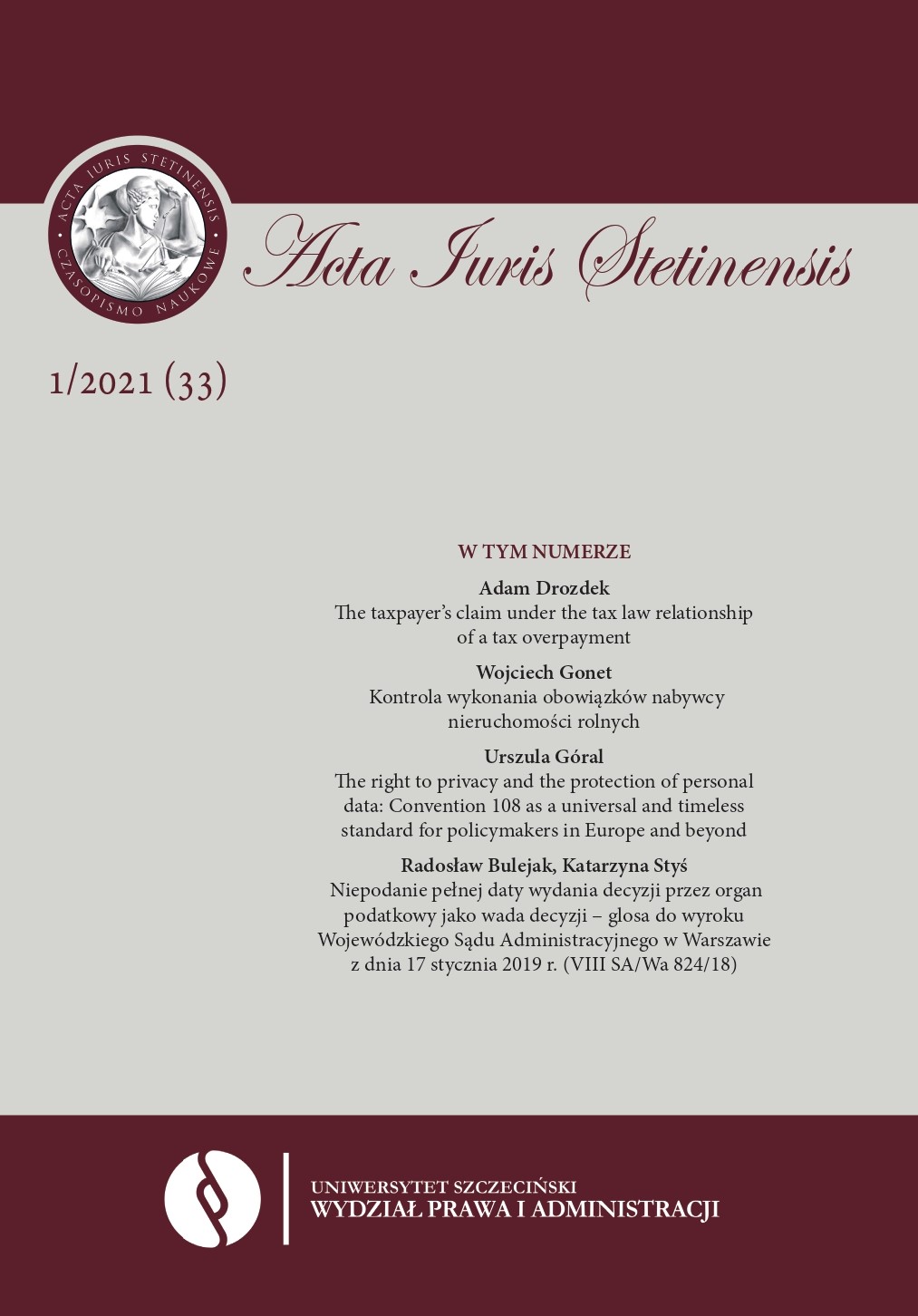Oddziaływanie klauzuli przeciwko unikaniu opodatkowania na indywidualne interpretacje przepisów prawa podatkowego – wnioski de lege lata i de lege ferenda
Impact of the tax avoidance clause on the individual interpretations of tax law provisions – de lege lata and de lege ferenda conclusions
Author(s): Tomasz StachurskiSubject(s): Law, Constitution, Jurisprudence, Constitutional Law, Civil Law, Law on Economics, Administrative Law
Published by: Wydawnictwo Naukowe Uniwersytetu Szczecińskiego
Keywords: individual interpretations of tax law provisions; tax avoidance clause; principle of proportionality; principle of the protection of citizens’ trust in the state and its legislation
Summary/Abstract: The purpose of writing this article is to show and assess the influence that is currently being exerted by the tax avoidance clause on individual interpretations of tax law provisions. It is an important issue, because strong interaction has been noticed between these law institutions as well as the different purposes for establishing them. The author carries out a critical analysis of this phenomenon noting that it strongly limits basic functions of individual interpretations which serve to protect taxpayers’ rights. Moreover, numerous threats are noticed and demonstrated. They are mainly related to the multiplicity of indefinite, evaluative phrases used in the regulation of the tax avoidance clause. The author analyses and interprets laws in force and examines judicial decisions of administrative courts as well as views of legal scholars and commentators. The thesis of this paper stipulates that the current form of provisions violates the constitutional principle of the protection of citizens’ trust in the state and its legislation and the principle of proportionality. Also, the article expresses an opinion that authorities now have been given too great administrative discretion in refusing to issue an individual interpretation. Therefore, the de lege ferenda conclusions are formulated intended to improve the negative consequences of the tax avoidance clause’s impact on individual interpretations.
Journal: Acta Iuris Stetinensis
- Issue Year: 2021
- Issue No: 33 (1)
- Page Range: 133-145
- Page Count: 13
- Language: Polish

